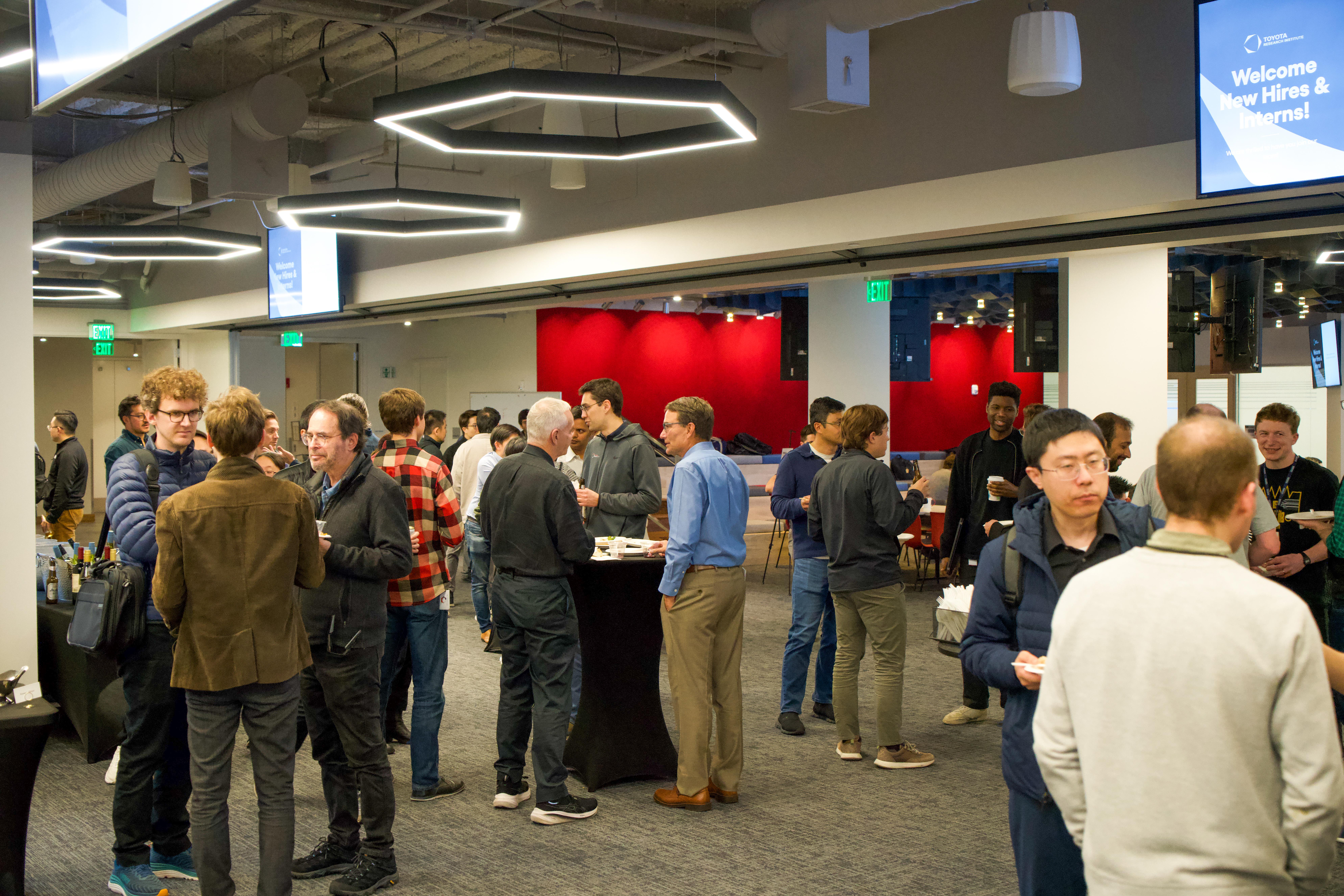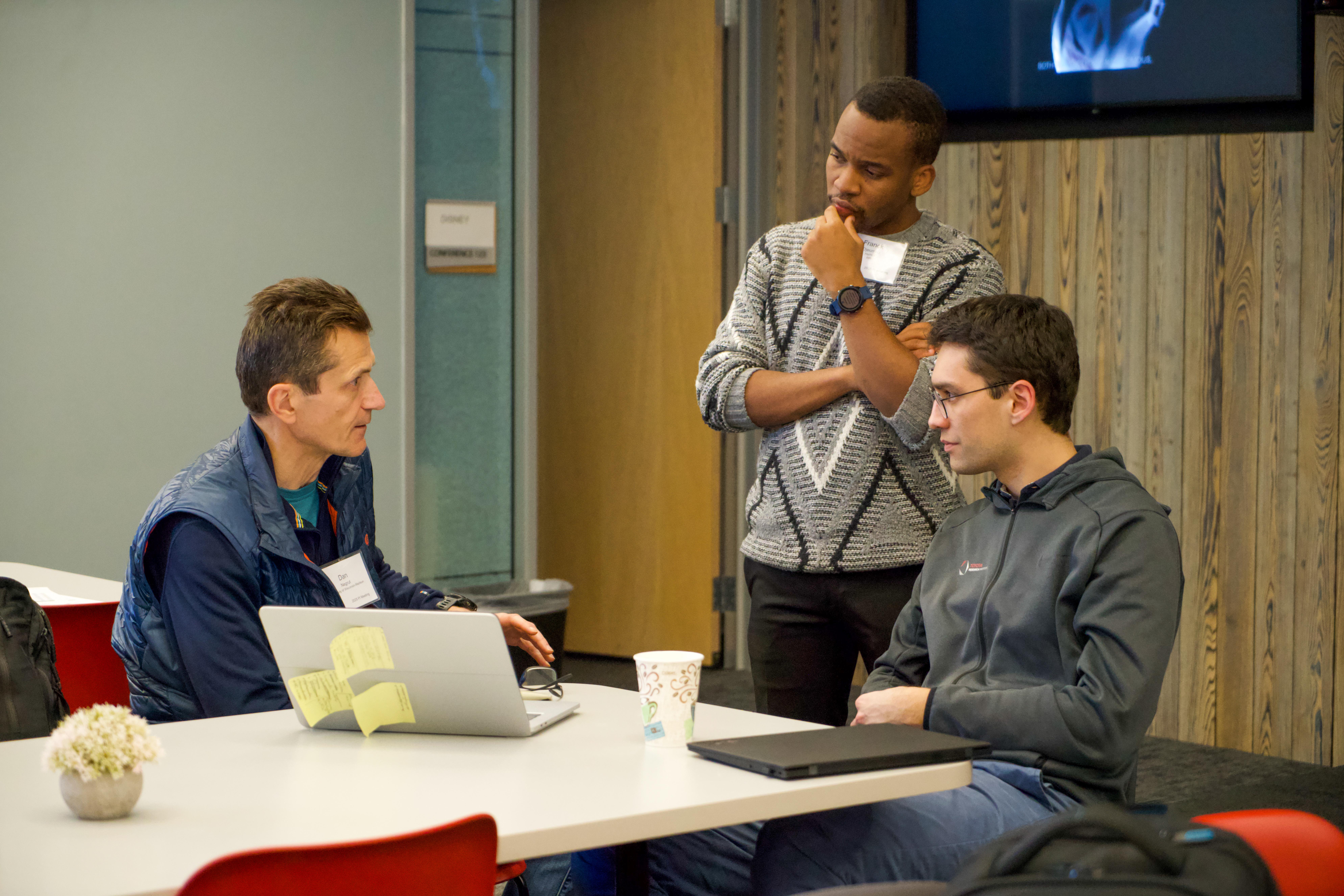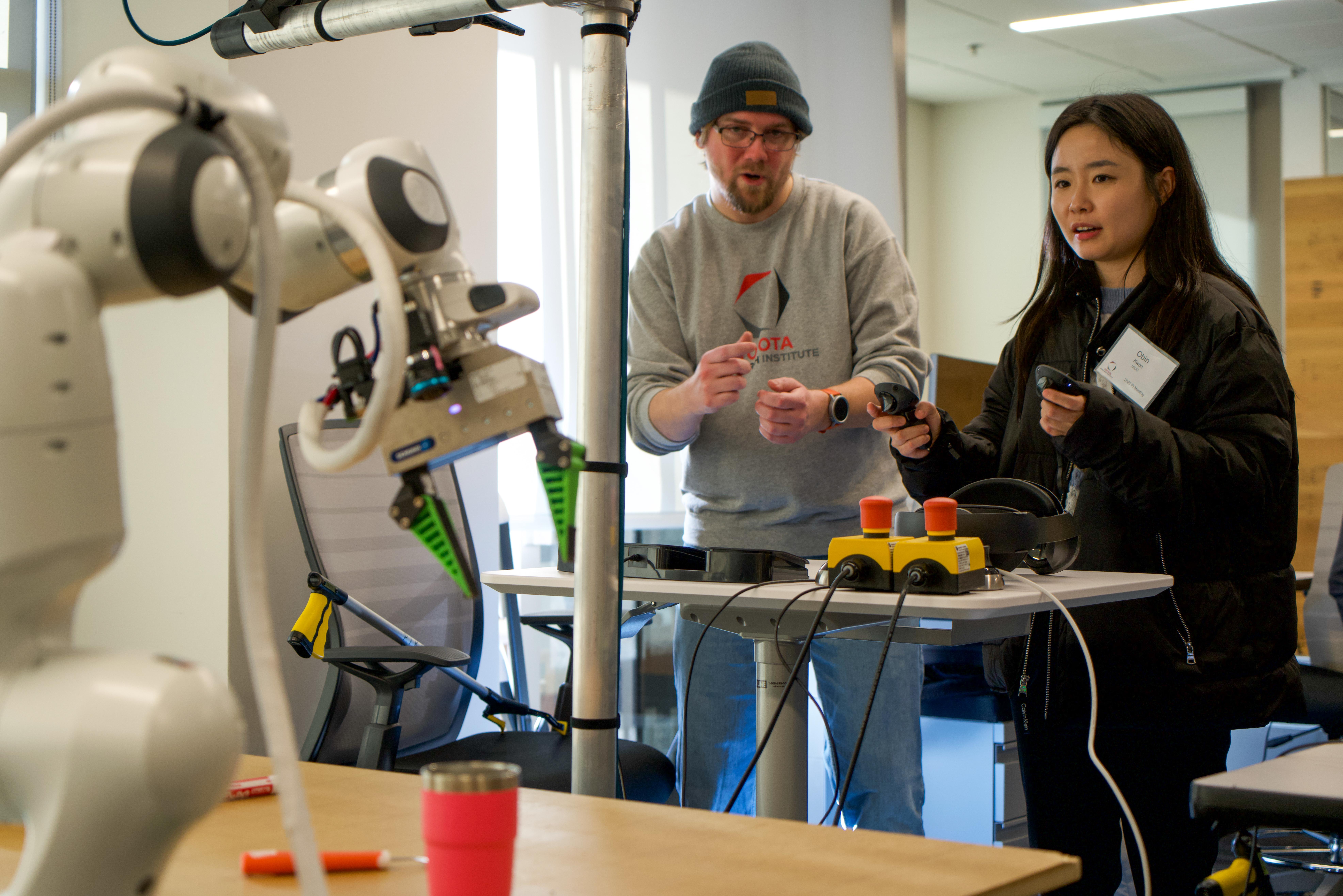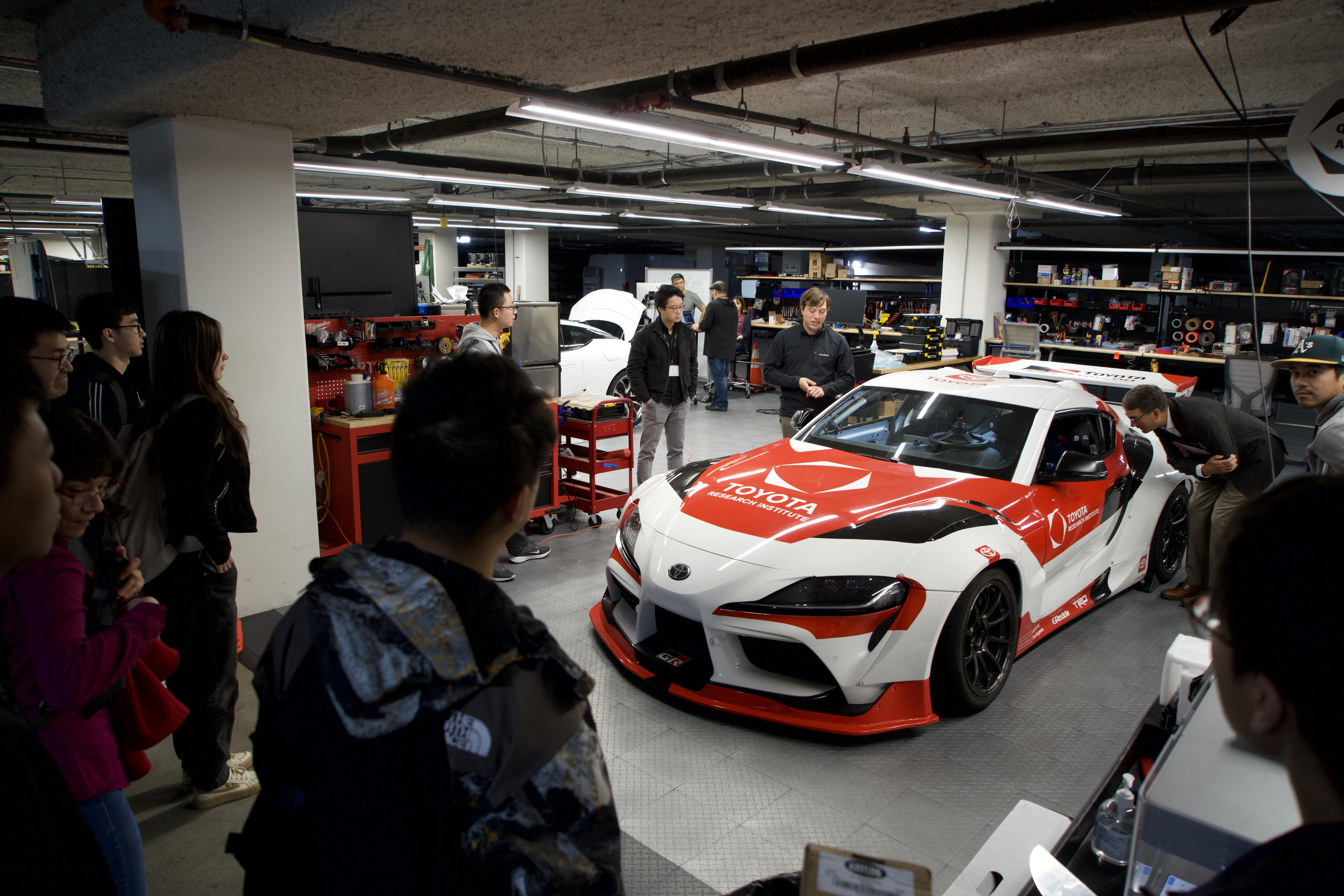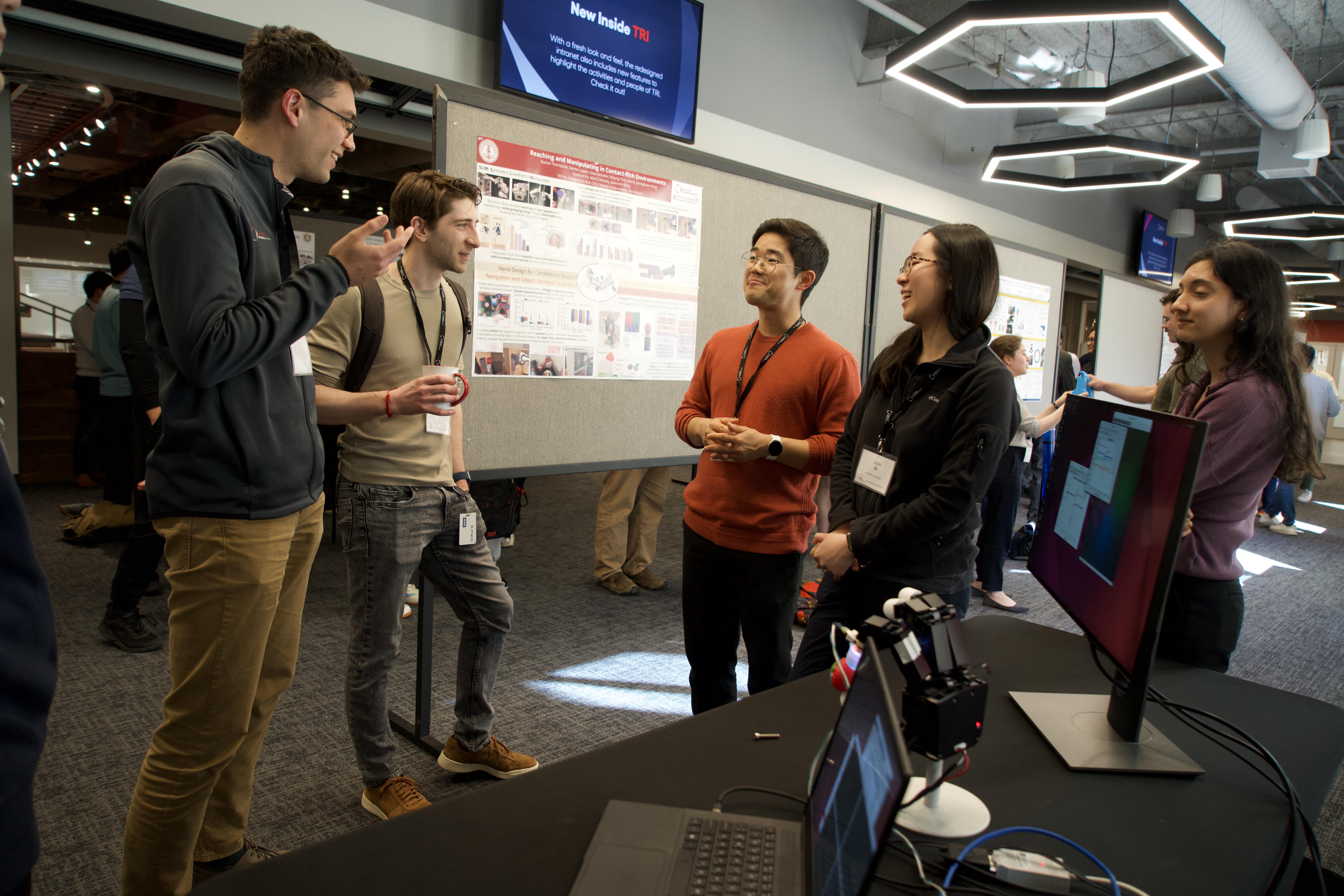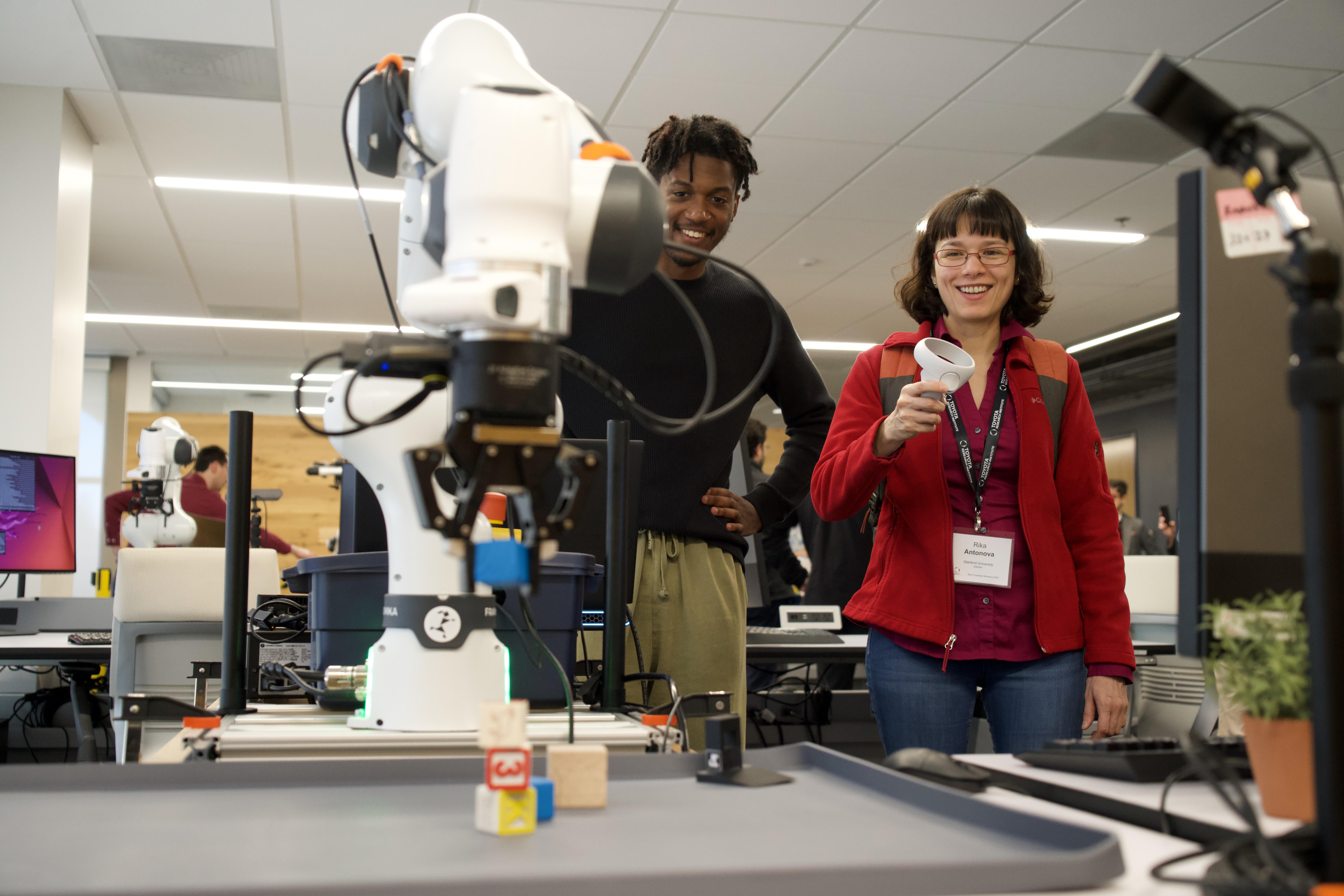Conducting Research with TRI
Throughout its history, Toyota Research Institute (TRI) has engaged with university partners to conduct sponsored and collaborative research in artificial intelligence (AI). During our first five years, from 2016 through 2020, TRI established the University Research Partnership (URP) program and started supporting work at Michigan, MIT, and Stanford. In 2021, TRI expanded its collaborative research program to an additional 13 academic institutions across North America in a new five-year phase called University 2.0. TRI is now planning for the University 3.0 program (2026 through 2030), seeking new university partners and projects to drive cutting-edge AI research and innovation.
Collaborating with TRI means joining a community driven by bold ideas, transformative research, and a commitment to redefining the future of AI in key research areas: Energy & Materials, Human-Centered AI, Human Interactive Driving, Large Behavior Models, and Robotics. Our partnerships are built on deep intellectual engagement, bidirectional knowledge exchange, and the shared pursuit of groundbreaking discoveries, as joint TRI-University research projects are focused on achieving breakthroughs for difficult technological challenges.
At TRI, you’ll find an environment that values visionary thinking, supports ambitious research, and fosters meaningful collaboration between academia and industry. Whether you’re an established researcher or an emerging leader, we invite you to explore opportunities with TRI—connect with our team, find alignment with our mission, and start shaping the future together.
University Research Partnership (URP) Objectives
The objectives of the University Research Partnership (URP) program include:
- Advancing AI technologies by generating transformative knowledge, pioneering breakthroughs, and redefining the state of the art.
- Fostering dynamic knowledge exchange between TRI researchers and university partners to accelerate scientific and technological progress.
- Identifying and investing in visionary early-career faculty whose groundbreaking research has the potential to leapfrog scientific progress and redefine the future of their fields.
TRI Vision and Mission
VISION
TRI envisions a future where Toyota products, enabled by TRI technology, dramatically improve quality of life for individuals and society.
MISSION
To achieve its Vision, TRI’s Mission is to create new tools and capabilities focused on improving the human condition through research in Energy & Materials (E&M), Human-Centered AI (HCAI), Human Interactive Driving (HID), Large Behavior Models (LBM), and Robotics.
Research Areas
For a general overview of TRI's research divisions, please see our main TRI website in the links below:
Review the University Research Partnership portal for specific Division research needs.
How to work with us
TRI offers two options for conducting collaborative research:
Joint TRI-University (J-TUR) Projects
The Joint TRI-University Research (J-TUR) projects focus on achieving breakthroughs around difficult technological challenges in TRI’s research areas. Our innovation is also driven by the desire to advance the state of science and contribute to the greater research community.
Proposed research topics should align with and contribute to the TRI research areas. In exceptional cases, the program may consider topics with high potential for revolutionary advancement despite not aligning strongly with the TRI mission.
In a J-TUR project, a TRI researcher and university principal investigator (PI) work collaboratively as true partners to drive the research forward. The TRI researcher is not just a sponsor but an active, passionate member of the collaborative research team—providing continuous guidance, ensuring project alignment with TRI’s research vision, and serving as both an internal and external champion for the project’s impact on the world.
Review the official solicitation for details about eligibility, process, format of written materials, and submission guidelines.
Joint TRI-University Research (J-TUR) Request for Proposals [URP-J-TUR-01]
Young Faculty Researchers (YFR)
TRI enables Young Faculty Researchers (YFR) to explore broadly, inquire deeply, and address higher-risk, higher-payoff ideas. We define young faculty researchers as tenure-track professors who have not yet submitted their tenure package during the 2025-2026 academic year.
Our dedicated Young Faculty Researcher projects offer funding, mentoring, and industry experience. In addition to closely collaborating with their TRI Mentor, they join a cohort of YFR peers and participate in exclusive events—such as symposia, panels, and discussions with leading experts—that foster insight, visibility, and professional growth to help them advance towards the next level in their careers. These projects provide base funding for two years and then an invitation to convert into a TRI Joint-University Research (J-TUR) project for the remainder of the University 3.0 program.
Review the official solicitation for details about specific research opportunities, eligibility, process, format of written materials, and submission guidelines.
Young Faculty Researchers (YFR) Request for Proposals [URP-YFR-01]
Application Process
Applying for a project is a three-step process: (i) finding aligned TRI researchers and initial discussions, (ii) co-authoring and submitting proposals, and (iii) if selected, university-approved budgets and contracting.
The application process is the same for Joint TRI-University Research (J-TUR) and for Young Faculty Researcher (YFR) project proposals.
The proposal will describe the proposed technical approach and how the proposer will conduct the proposed research. Guidance for drafting proposals, including format and the information each must contain, plus eligibility requirements, evaluation criteria, and details on project awarding, can be found in the respective documents linked above.
Schedule
| Date | Description |
|---|---|
| 1 May 2025 | Request for Proposals: Joint TRI-University Research (J-TUR), Young Faculty Research (YFR) |
| 1 May - 15 July 2025 | Open Discussion with TRi and University Researchers |
| 15 July 2025 | Registration of Intent to Submit Proposal |
| 15 July - 1 Sep. 2025 | Proposal Development with TRI & University Researchers |
| 1 Sep. 2025 | Proposals Due |
| 1 Sep. - 1 Oct. 2025 | Proposal Review |
| 1 Oct. 2025 | Funding Decisions Announced and University-Approved Budget Requested |
| 1 Nov. 2025 | University-Approved Budgets Due |
| 1 Nov. 2025 - 13 March 2026 | University - TRI Contracting |
| 1 Apr. 2026 | University 3.0 Projects Begin |
Registration and Submission
Registration of intent to submit a proposal must be completed by the intended Lead TRI Co-I by 12 midnight AOE (anywhere on Earth) on 15 July 2025.
- Registration of Intent to Submit a Proposal (to be completed by the Lead TRI Co-I, not by university personnel)
Submissions of a proposal should be submitted by the intended Lead TRI Co-I by 12 midnight AOE (anywhere on Earth) on 01 September 2025. The submission link will be distributed directly to the Lead TRI Co-Is who have registered above.
Submissions should follow this template:
All submissions should be in .pdf format with the following naming convention:
- ProposalType_TRIDivision_University_PIName_LeadTRICoIName.pdf
Submissions must be formatted as follows:
- Body font 11pt or larger
- Figure font 8pt or larger
- Margins .75 inches or larger
Questions
View frequently asked questions:
To submit questions, please e-mail a message to:
- Joint TRI-University Research Projects: urp-j-tur-questions@tri.global
- Young Faculty Research Projects: urp-yfr-questions@tri.global
If your questions require discussion, please schedule time with Kate Tsui, Program Director, University Research Partnerships:
